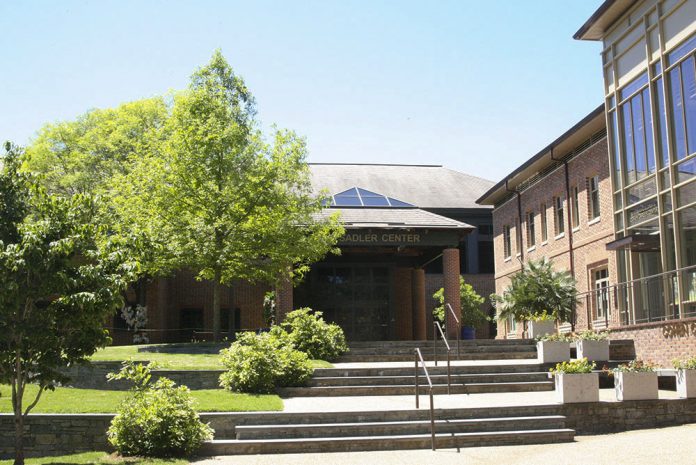Before I start, let me confirm one thing above all else: I am a live-free-or-die supporter of our inviolable right to peacefully protest. The unaffiliated group of students who assembled in the Sadler Center the evening of Thursday, Feb. 6, to protest College of William and Mary Chancellor Robert Gates’ appearance at the talk titled “Crucibles of Leadership: U.S. Foreign Policy Past, Present and Future” did so with grace and civility, and the harassment that they received from some of the members of the Williamsburg community is shameful and must be discouraged.
I must confess, however, that I struggle to see the purpose of this particular protest.
As the former secretary of defense under two presidential administrations during the latter half of the Iraq War, with a previous position during the early 1990s as the director of the CIA, Gates has had direct experience in the foreign policy of the United States, and as such, his inclusion in a discussion on the history of our country’s foreign policy was sure to provide a unique perspective to those in attendance.
However, it was this very experience which sparked the protests by a group of College students against Gates’ appearance at the discussion, with a particular focus on his involvement in the Iraq War as secretary of defense.
Flyers handed out during the protest accused Gates of war crimes such as “prosecuting a war of aggression” and “bombing civilian populations.”
I will not attempt here to justify or condemn the United States’ role in the Iraq War: it is another debate for another time. War is always a terrible plague to be avoided, and it is far too easy for us in the present to look back now on the war and pass judgment. Nevertheless, it must be noted that, as the secretary of defense, Gates inherited oversight of the Iraq War from his predecessor. Had Gates chosen to completely ignore the war, he would have been abdicating his oath to faithfully discharge the duties of the office.
It is also worth noting that the withdrawal of troops from Iraq began under Gates’ watch, even as he transitioned between serving two presidential administrations.
In any case, Gates is certainly not immune to any criticism of the actions taken during his time as secretary of defense. However, I am a firm believer in the power of protests to spark or inspire change in one’s actions or society, and it is for this particular reason that I found myself confused by the student protests against Gates.
Seeing how Gates is limited by a linear understanding of time in being able to change his actions during the Iraq War, what was it that the students were hoping to accomplish? Was it the student group’s intent only to shame Gates for serving as the secretary of defense, a role which in his personal memoir he reveals that he did not enjoy? Was it the student group’s intention to protest Gates’ mere presence at the event and dismiss him for sharing his knowledge on a subject in which he is eminently qualified? Or, was it the student group’s intentions to simply inform the community about Gates, which anyone who was unfamiliar with the man could resolve with a simple Google search on his or her smartphone?
My advice for any peaceful protestors is to make your intentions clear to your audience. As we can see from our current political discourse, shouting and name calling completely destroys the civility that is necessary for communication and discourages others with competing points of view.
On the contrary, as we can see from history, it is the passionate, eloquent and focused calls for change that speak the most volumes and turn the tides for many.
Email Lucas Harsche at

